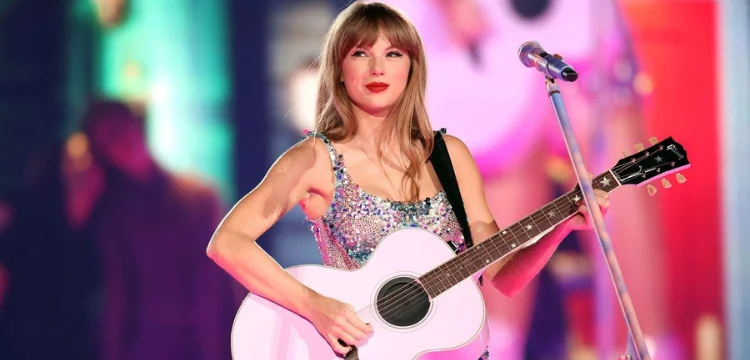Taylor Swift, one of the most successful and influential musicians of our time, has long resonated with fans for her raw and confessional songwriting. However, her silence on the recent Israeli-Palestinian conflict has sparked disappointment among many of her dedicated followers, including some in Karachi.
Swift’s music, which has often centered around themes of personal vulnerability and self-discovery, has deeply connected with fans like Naveen Shariff and Rabiya Raza. They, along with other “Swifties,” have grown up with her songs and seen her as a role model who could articulate complex emotions and experiences. Despite this strong connection, her lack of public stance on the violence in Gaza has left them feeling betrayed.
Naveen, a long-time fan, expressed her disappointment, noting that Swift’s silence feels particularly jarring given the visible support for Palestine from some of her tour staff and best friend, Gigi Hadid. Rabiya, another dedicated fan, finds it difficult to reconcile consuming Swift’s art with her failure to address what they see as a critical humanitarian issue. Both fans believe that someone with Swift’s platform should not remain silent in the face of what they perceive as genocide.
Also Read: Taylor Swift Admirer From Pakistan Sets Guinness World record
Taylor Swift’s career, marked by both her musical talent and her legal battles to reclaim her artistic work, has often intersected with political themes. Her decision to re-record her early albums to regain control over her music was celebrated as a feminist and artistically empowering move. Yet, her current reluctance to engage with the Israeli-Palestinian conflict challenges her previously cultivated image of political awareness and advocacy.
The online activism seen through hashtags like #SwiftiesForPalestine and #SpeakNowTaylorSwift underscores the growing expectation that celebrities use their influence to address significant global issues. The pressure from fans for Swift to speak out is part of a broader trend where audiences demand more accountability and ethical stances from public figures.
The dilemma faced by Swift’s fans reflects a broader conflict between personal admiration for an artist and ethical consumption. For many, reducing their support for Swift’s music feels like the right step, even if it’s difficult, as they struggle with the notion of endorsing an artist who does not use their platform to take a stand on critical issues.
Ultimately, the situation highlights the complex interplay between celebrity, politics, and fandom in the digital age. As public figures like Taylor Swift navigate these waters, their decisions—or lack thereof—can profoundly impact their relationships with their audiences and their legacy in the public eye.










